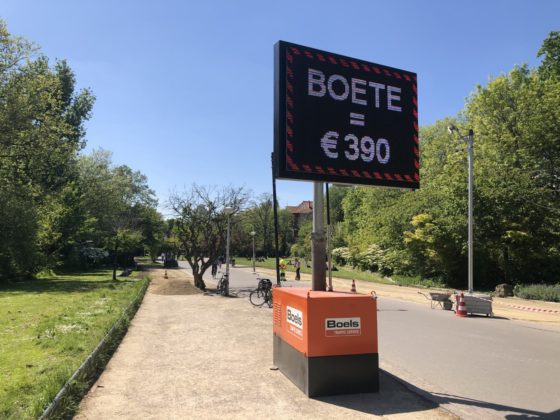Watered down coronavirus bill still lacks democratic safeguards, say experts


The government has submitted a watered-down coronavirus bill following criticism that the original version put too much power in the hands of health minister Hugo de Jonge.
The revised proposal will be studied by MPs but is now unlikely to become law before October. Originally the cabinet had hoped to secure parliament’s consent before July 1.
Dutch coronavirus regulations took the form of emergency orders in the first months of the outbreak, but politicians and the Council of State agreed that in the long term they should be enshrined in law and subjected to democratic scrutiny.
Privacy experts described the cabinet’s first draft as too draconian, giving police wide-ranging powers to enforce the coronavirus rules in private spaces including people’s homes. The new version makes clear that police will not be allowed to enter houses to monitor social distancing, though they can use existing powers to deal with anti-social behaviour.
Ministers will still be able to impose lockdown measures on a nationwide basis such as closing schools, shops and restaurants and restricting the number of passengers on public transport. Mayors will be able to apply for exceptions to the rules, such as allowing more people to attend a public event, if there is no increased risk to public health.
1.5 metre rule
The ‘basic rule’ of keeping 1.5 metres apart in public spaces is also written into the bill, along with provision for fines for people who fail to observe it.
The ‘corona app’ designed to trace and alert people who have been in contact with someone infected with the virus has also been taken out of the bill and will form the basis of a separate law.
The cabinet has also shortened the expiry date of the fast-tracked law from a year to six months.
The Council of State said the revised version still concentrated too much power in the hands of De Jonge and said other ministers should have more scope to change anti-virus measures. It also criticised the cabinet for rejecting its earlier recommendation to decriminalise the regulations, meaning people who breach the 1.5 metre rule can still end up with a criminal record.
Rule by decree
Wim Voermans, professor of constitutional law at Leiden University, told Nieuwsuur that the new bill was an improvement on the old one but still gave ministers too much scope to effectively rule by decree.
‘The law empowers ministers to bring in intrusive measures on their own initiative, such as closing schools or hospitality premises,’ he said. ‘That’s not how we want it to be in this country. Regulations come into force one week after the minister submits them to parliament.’
Voermans said the Netherlands should adopt the practice of countries such as France, Spain and Italy, where parliament’s consent is required for any emergency measures. ‘In those countries parliament decides the length of a state of emergency and it can end it too. It’s important in a parliamentary democracy for the people’s representatives to have the last word.’
Thank you for donating to DutchNews.nl.
We could not provide the Dutch News service, and keep it free of charge, without the generous support of our readers. Your donations allow us to report on issues you tell us matter, and provide you with a summary of the most important Dutch news each day.
Make a donation